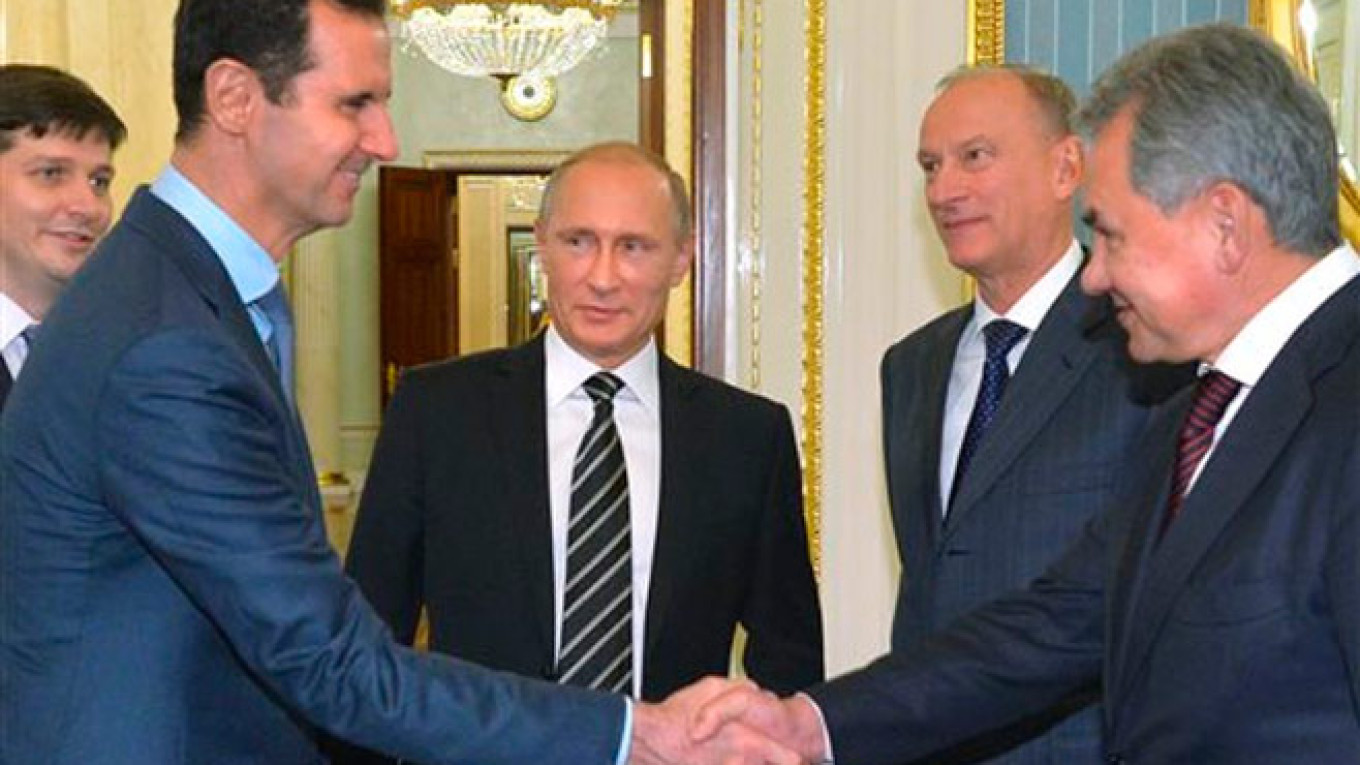The sudden announcement that Syrian President Bashar Assad is ready to hold early elections obviously comes at Moscow's urging. Assad broke the news in Damascus to a visiting delegation of Russian parliamentarians just three days after the Syrian leader returned from his meeting in Moscow with President Vladimir Putin. Bloomberg quoted an unidentified senior Moscow politician as saying that the Kremlin insisted on this scenario.
Russia has long used early elections as a cover for reappointing public officials, especially governors. As applied to Assad, Moscow might have either one of two nearly opposite goals in mind.
First, the Kremlin might want to use early elections to "renew the mandate" of Syria's standing president, the man whom Moscow insists is the "legitimate leader" despite the incredulity of the West.
Of course, it is theoretically possible to hold early elections in a country seized by civil war and then proclaim the winner the legitimate president, but what good would it do?
A truce is first necessary for elections to have any legitimacy at all, and a truce can only occur once the Islamic State is routed from the country or a major portion of Syrian territory is cleared of militants. Clearly, victory over the Islamic State is a long-term goal, even with the help of Russian aviation and the Iranian military.
According to Alexei Malashenko of the Carnegie Center, if Russia supports Assad's participation in those elections, it will mean that Moscow has abandoned its earlier commitment to help create a transitional government to facilitate Assad's departure and plans to once again get behind the current leadership so as not to betray "its own guy" in the Middle East.
If that happens, the Syrian opposition, Turkey, the West and the Arab states will refuse to recognize the results of the elections and the war will inevitably continue.
The Kremlin's attempts to reconcile the Damascus regime and its moderate opponents are both ineffective and contradictory.
Many participants of the moderate opposition are unwilling to cooperate with Russia and Assad, and the Russian authorities have not yet responded to the proposal by the Free Syrian Army to hold talks in Cairo.
Second, early elections could be a way to ease Assad's departure.
According to international relations specialist Vladimir Frolov, in that scenario, Assad would withdraw from the elections at the last minute and put forward another candidate who is acceptable to the moderate opposition.
But in that case, Moscow would face other difficulties: it was late in establishing contacts with the moderate opposition and it will have trouble ensuring the safety of the Alawite minority.
It is also unclear what to do with Assad's closest associates, whom opponents will accuse of war crimes and the mass murder of civilians.
Moscow's previous "ward," former Ukrainian President Viktor Yanukovych, faced a similar situation against a far more peaceful backdrop.
On Feb. 4, 2014 he promised to hold elections, on Feb. 21 he signed an agreement with the opposition — and on the very next day he had to flee Kiev for his life and was ousted from power by the Ukrainian parliament.
Pavel Aptekar is a historian and commentator for Vedomosti. This comment originally appeared in Vedomosti.
A Message from The Moscow Times:
Dear readers,
We are facing unprecedented challenges. Russia's Prosecutor General's Office has designated The Moscow Times as an "undesirable" organization, criminalizing our work and putting our staff at risk of prosecution. This follows our earlier unjust labeling as a "foreign agent."
These actions are direct attempts to silence independent journalism in Russia. The authorities claim our work "discredits the decisions of the Russian leadership." We see things differently: we strive to provide accurate, unbiased reporting on Russia.
We, the journalists of The Moscow Times, refuse to be silenced. But to continue our work, we need your help.
Your support, no matter how small, makes a world of difference. If you can, please support us monthly starting from just $2. It's quick to set up, and every contribution makes a significant impact.
By supporting The Moscow Times, you're defending open, independent journalism in the face of repression. Thank you for standing with us.
Remind me later.


